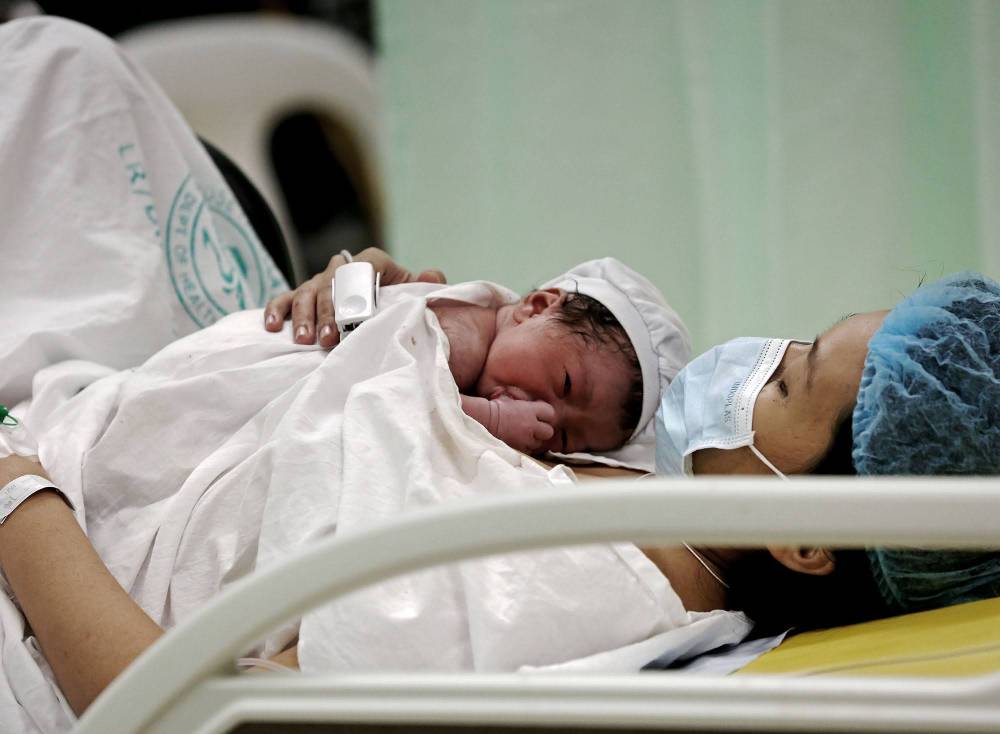New Year at Fabella: Here comes ‘Gen Beta’

Exactly a second after midnight on Jan. 1, Lea Mae Razo, a first-time mother at 27, successfully gave birth to a baby girl, Alea Jayde, at Dr. Jose Fabella Memorial Hospital in Manila.
“My only wish for my baby is for her to stay healthy, grow up fearing God, and have discipline,” Razo later told reporters.
Dr. Jeglen Cruz, senior house officer of the hospital, said in an interview on Teleradyo that three more babies had been delivered at Fabella as of 7 a.m. on New Year’s Day.
The hospital is considered a “baby factory” due to the sheer number of children born in the government-run facility, where the health department showcases its newborn care programs.
“A New Year baby brings hope, joy and perseverance to our families, our communities and to our nation,” Cruz said.
Alea Jayde and the three other newborns are now part of the newest generation called “Generation Beta,” whose daily lives are expected to be fully immersed in more advanced technologies.
Members of “Gen Beta” are those who will be born from 2025 to 2039, according to McCrindle, a social research firm led by Australian demographer and generational analyst Mark McCrindle.
1.45M babies this year
They are the children of younger millennials (Gen Y, born from 1980 to 1994) and older Gen Zers (born from 1995 to 2009).
By 2035, Gen Beta people are projected to make up at least 16 percent of the global population, and many of them will be able to live in the next century. The oldest Gen Beta members born in 2025, will be 76 years old in 2101.
Based on Philippine Statistics Authority projections, around 1.45 million Filipino babies will be born this year, ushering in the country’s oldest Gen Beta members.
On average, around 4,000 babies are born daily, which translates to 166 babies born per hour or nearly three babies born per minute.
AI generation
While Generation Alpha (born from 2010 to 2024) grew up with smartphones and social media, Generation Beta will grow up in an environment familiar with virtual reality (VR), augmented reality (AR) and artificial intelligence (AI).
“For Generation Beta, the digital and physical worlds will be seamless. While Generation Alpha experienced the rise of smart technology and artificial intelligence, Generation Beta will live in an era where AI and automation are fully embedded in everyday life—from education and workplaces to health care and entertainment,” McCrindle said in a news release posted on its website.
“They will likely be the first generation to experience autonomous transportation at scale, wearable health technologies, and immersive virtual environments as standard aspects of daily life. Their formative years will be marked by a greater emphasis on personalization—AI algorithms will tailor their learning, shopping, and social interactions in ways we can only begin to imagine today,” it added.
The role of millennial and Gen Z parents will play a crucial role in how technology will be part of their Gen Beta children.
Millennial, Gen Z parenting
According to McCrindle, these parents are more likely to be cautious with how their children interact with digital technology.
Millennial parents will use social media to document their children’s lives. But Gen Z parents—who are the most technologically savvy as the first digitally native generation and know most about the pros and cons of exposure to social media at an early age—will most likely limit the screen time of their children.
“Gen Z [sees] the benefits of technology and screen time, but equally they see the downsides of it and are pushing back on technology and the age at which their children access and engage with it,” it said.
But this latest generation is also set to inherit a world grappling with major societal challenges, such as climate change and rapid urbanization.
“This generation will be raised by millennial and older Gen Z parents, many of whom prioritize adaptability, equality, and eco-consciousness in their parenting,” McCrindle said.
“This will result in Generation Beta being more globally minded, community-focused, and collaborative than ever before. Their upbringing will emphasize the importance of innovation not just for convenience, but for solving the pressing challenges of their time,” it added.





















